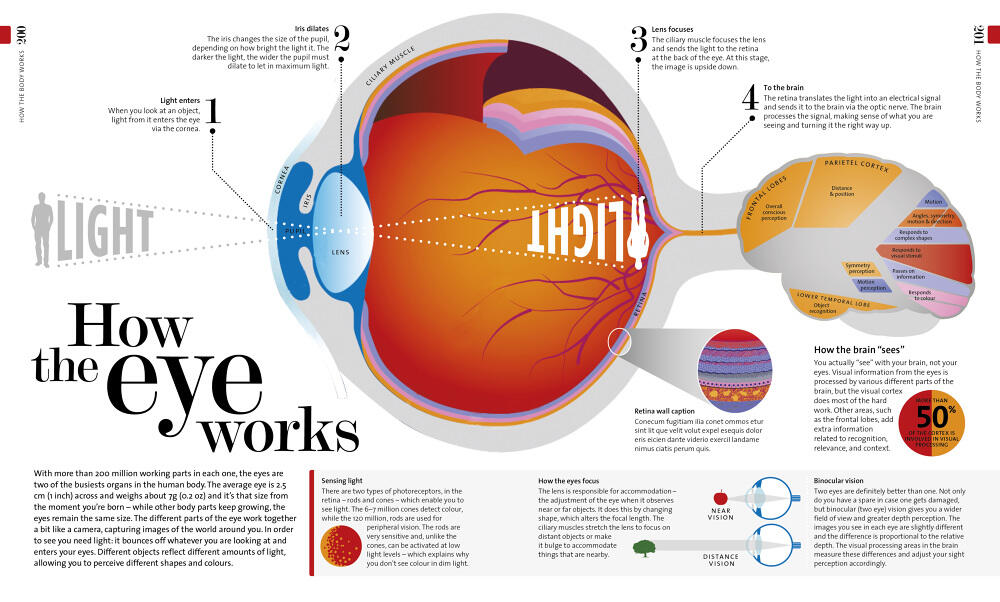Sight People are afraid of ghosts maybe because of their horrible appearance, because of what a spirit might do, or because of suggestion...
Sight
People are afraid of ghosts maybe because of their horrible appearance, because of what a spirit might do, or because of suggestion. Before fear, let us realize if you see it requires light, that is, you need light to see ghosts?
Before going to the core of the discussion, we see how the eye sees objects:
HINT: The image you see is also processed upside down in your eyes
So, if you see ghosts, why should you be afraid to weigh ghosts and need light to see?
The question and paradox are:
However, finally, the following paradox arises:
Opacity
Why are we afraid of total darkness?
From point number 4 above this paradox emerges. Say there will not be something that will emerge from the darkness to hurt or haunt us, will we not be afraid of the dark (total)?
We should not be afraid of darkness (total) if it is assumed that there is nothing dangerous in the total darkness.
Questions and paradoxes:
Say someone had never seen a ghost, had never received information about a spirit when he was in a place with total darkness would he still feel scared of the full dark? (exceptions to fear of tripping, fear of crashing, fear of stepping on dangerous objects, and others that are not ghosts).
If yes, what is feared by total darkness?
If not, why are we afraid of ghosts (unknown objects) who need light to see? (spirits here are considered not to hurt us)
People are afraid of ghosts maybe because of their horrible appearance, because of what a spirit might do, or because of suggestion. Before fear, let us realize if you see it requires light, that is, you need light to see ghosts?
Before going to the core of the discussion, we see how the eye sees objects:
HINT: The image you see is also processed upside down in your eyes
So, if you see ghosts, why should you be afraid to weigh ghosts and need light to see?
The question and paradox are:
- Why do visual fears occur at a sufficient amount of light?
- In general, ghosts do not appear during the day or, ghosts are afraid of the light. If we re-understand how we see that ghosts only need enough light (meaning not total darkness) to be visible so that we are afraid, then, what is the level of light so that the ghost is afraid? So, it can be said, the formula for the level of light that is safe enough for ghosts is as follows. Cghost = The amount of light that is safe enough for ghosts
- How bright is a place until it can be said that we are no longer afraid to see ghosts? That is, will we still be afraid of seeing a ghost during the day?
- Because ghosts can't hurt us, then if the light is identical to goodness, clarity, or information, shouldn't we be afraid of seeing ghosts?
- So, back to the light level somewhere.
However, finally, the following paradox arises:
Opacity
Why are we afraid of total darkness?
From point number 4 above this paradox emerges. Say there will not be something that will emerge from the darkness to hurt or haunt us, will we not be afraid of the dark (total)?
We should not be afraid of darkness (total) if it is assumed that there is nothing dangerous in the total darkness.
Questions and paradoxes:
Say someone had never seen a ghost, had never received information about a spirit when he was in a place with total darkness would he still feel scared of the full dark? (exceptions to fear of tripping, fear of crashing, fear of stepping on dangerous objects, and others that are not ghosts).
If yes, what is feared by total darkness?
If not, why are we afraid of ghosts (unknown objects) who need light to see? (spirits here are considered not to hurt us)
Source: google, pearsoneducation













COMMENTS